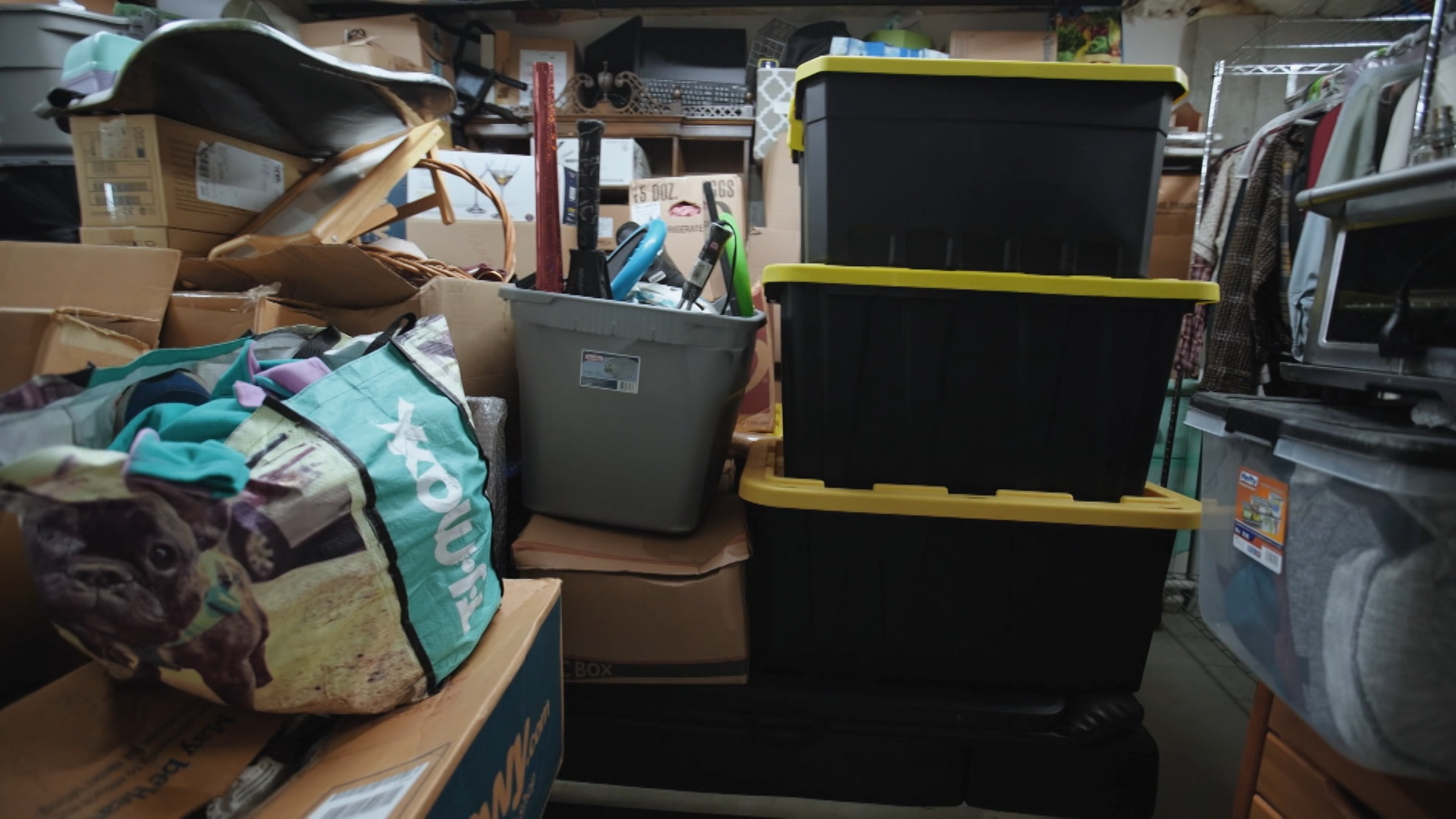Yes, it’s a chore, but decluttering has myriad benefits

With the holidays upon us and wish lists for friends and family on our minds, many of us may be wondering: do we really need any more stuff?
Decluttering expert Matt Paxton is very familiar with this lament. The Suwanee-based star of the PBS show “Legacy List” (its fifth season debuts Monday, Jan. 15), Paxton helps coach Americans through the often difficult work of purging their lives of the excess accumulation that causes so many of us so much stress. Many of Paxton’s clients come to him as part of a life change that requires downsizing and getting rid of stuff accumulated over a lifetime that they can’t take to a new, smaller space. In Sweden it’s known as “Swedish death cleaning” which focuses on purging yourself of unnecessary clutter before you die so as not to burden relatives with that task.

“All of us are overwhelmed by stuff, and it holds us back from living the life we want,” said Patton.
Lizabeth Cohen is an American studies professor at Harvard and the author of “Saving America’s Cities” and “A Consumer’s Republic: The Politics Of Mass Consumption In Postwar America.” She points out that after WWII, mass consumption became something of an American birthright.
“I would suggest that Americans accumulate as much as they have because they can. About two-thirds of Americans own their own homes, and the size of the average American home has grown over the postwar period. More space means more room for stuff,” Cohen said.

“Products are marketed as promising a lifestyle and desired identity, which consumers feel they are fulfilling when they buy the product,” said Cohen, a kind of fantasizing about a desired life that Paxton also sees play out in his efforts to purge households of objects and identities that no longer factor into reality. Examples include holding onto skis for ski vacations that will never be taken, or ill-fitting clothing kept in anticipation of future weight loss.
Shopping and deal-finding are virtually a national pastime for many of us, and can necessitate our related pastime of purging and organizing. The gifting and getting season can make us eager to declutter, but Paxton says it is better to wait.
“Don’t try to tackle it all in the holiday season, because you’re supposed to be home with your family. You’re supposed to be enjoying it,” noted Paxton.
“So what I always say is when January starts, I want to see people working,” said Paxton.

Interior designer Mark Williams notes that decluttering can turn your home into more of a sanctuary and a visually — and therefore psychologically — calming place. “The outside world can be so crazy and hectic all the time, arriving home should feel like a deep exhale, a return to your safe space,” said Williams.
Paxton likens decluttering our homes of stuff to weight loss. No one expects to drop 20 excess pounds overnight and we shouldn’t expect to shed our abundance of kitchen tools, holiday cards, unused exercise equipment and other piles of clutter instantly either. Instead, he says, you should start slow.
Professional decluttering tips
Start small. Rome wasn’t built in a day. Keep a box handy and get in the habit of doing a 10-minute sweep four or five days a week, setting things aside on a daily basis to make decluttering a habit, says Paxton.
Group and highlight collections for maximum impact. As interior designer Mark Williams notes, “Everyone has personal items, family photos, books, memorabilia, and yes even what some refer to as ‘collectibles’ that they love to have in sight. We always provide a place for all of those items to live in a single area that is well lit and looks intentional.”
Beauty and function should not be thought of as opposites. “Solve the ‘need’ of the space first, and then figure out how that need gets solved beautifully,” said Williams.
Don’t hoard for your fantasy life. Many people hold onto things like two sets of china for that huge dinner party they will never have, or keep a pair of skis they used in college in case they will use them in middle age. Paxton recommends not falling prey to fantasy when holding on to stuff.
Donate. One of the most satisfying aspects of purging beyond all the new space you gain is passing your items on to the Goodwill or a charity that helps immigrants start new lives with housewares. “Think of the difference you can make in someone’s life,” said Paxton.
Rethink the yard sale. Time is money, notes Paxton, and the time and effort put into getting ready for a yard sale compared to how much you might make is a losing proposition says Paxton.
Do a New Year closet appraisal. Turn all your hangers one way. Each time you wear something that year, turn the hanger the other way. Any hangers left unturned at the end of the year mean you are harboring outfits you don’t wear. Free them.
Felicia Feaster is a longtime lifestyle and design editor who spent 11 years covering gardening, interior design, trends and wellness for HGTV.com. Felicia is a contributor to MarthaStewart.com and has been interviewed as a design expert by The New York Times, Forbes and the Associated Press.

